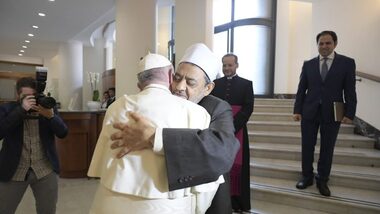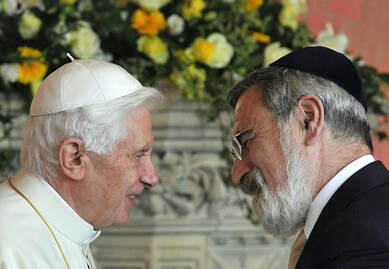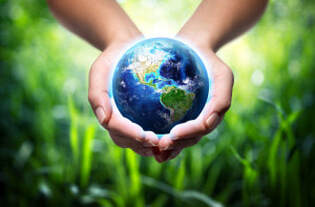
Relations with Islam frame the document. It begins with the story of St Francis of Assisi’s meeting with Sultan Malek al-Kamil of Egypt in the 13thcy during the fifth crusade. While the story is true – there is the gift of an ivory horn from the Sultan preserved in St Francis’ Baslica in Asissi as proof – it has become the stuff of legend. In some versions Francis, accompanied by Brother Illuminato, was on a peace mission, in others his desire was to preach Christianity and perhaps die as a martyr. Whatever was the truth of the situation the two were men of peace. The Sultan had offered peace to the Christian army five times and sought peaceful coexistence with Christians. Francis urged the crusader not to attack the Muslims during the siege of Damietta. When they met each recognised the other as a man of God. The story is that they spent time conversing with one another about the things of God. As a result of this encounter Francis encouraged his brothers not to engage in arguments or disputes with Muslims and non- believers while using opportunities to witness to their own faith by actions rather than words.
The encyclical ends with another Christian’s encounter with Islam. This one is Charles de Foucauld who lived as a hermit in the Sahara desert in Algeria among the Tuareg, a substantial Berber ethnic group in North Africa. He was murdered there and is considered to be a Christian martyr. His approach was like that of St Francis, living close to and sharing the life of the people. He preached, not through sermons but through the example of his life, studying the language and culture of the Tuareg and publishing the first Tuareg-French dictionary. He was challenged and impressed by the Tuareg’s faith. He wrote “The sight of their faith, of these people living in God’s constant presence, afforded me a glimpse into something greater and truer than earthly preoccupations”. In Fratelli Tutti Pope Francis describes him as one who “made a journey of transformation towards feeling a brother to all ….. he wanted to be in the end a brother to all”. The very last words of the encyclical are that God might inspire that dream in each one of us”.
An example of this brotherhood is seen in the friendship between the Pope and Ahmed el- Tayeb, the Grand Imam of Al-Azhar University in Cairo. Both men signed a document entitled Human Fraternity for World Peace and Living Together at an interfaith gathering in Abu Dhabi in February 2019. Pope Francis explicitly acknowledges the encouragement of the Grand Imam in the writing of Fratelli Tutti which he says takes up and develops some of the great themes raised in the Human Fraternity document where together the two religious leaders declared “God has created all human beings equal in rights, duties and dignity, and has called them to live together as brothers and sisters”.
The Pope and Imam stood side by side in Abu Dhabi, so we can imagine them standing side by side spiritually and intentionally in the reading and the writing of this encyclical. To underline this point a representative of the Grand Imam was at the launch of the encyclical – the first time a Muslim has ever presented a papal document. The Muslim was Judge Mohammed Mahmoud Abdel Salem, secretary general to the Higher Committee on Human Fraternity established to promote the Abu Dhabi document. Commenting after that event he said” I was really very moved when I first read Pope Francis’ message. I felt that the Pope is representing me in every word, in everything he said.” The Grand Imam also publicly welcomed the encyclical calling Pope Francis his brother and agreeing that “ Pope Francis’s message, Fratelli Tutti, is an extension of the Document on Human Fraternity, and reveals a global reality in which the vulnerable and marginalized pay the price for unstable positions and decisions… It is a message that is directed to people of good will, whose consciences are alive and restores conscience to humanity.”
The final interfaith moment for me are the prayers which conclude the encyclical. As with the Pope’s previous encyclical Laudato Si there are two of them. One of them is an ecumenical Christian prayer and the other is a prayer to the Creator which can be said standing side by side with our brothers and sisters of other faiths, particularly the Abrahamic faiths. To have a prayer like this in a papal document cuts across face to face dialogues that examine and debate the validity of interfaith prayers. In the face of the crises that face all of humanity why would we not want to pray
May our hearts be open to all the peoples and nations of the earth.
May we recognise the goodness and beauty that you have sown in each of us,
and thus forge bonds of unity, common projects and shared dreams. Amen




 RSS Feed
RSS Feed
